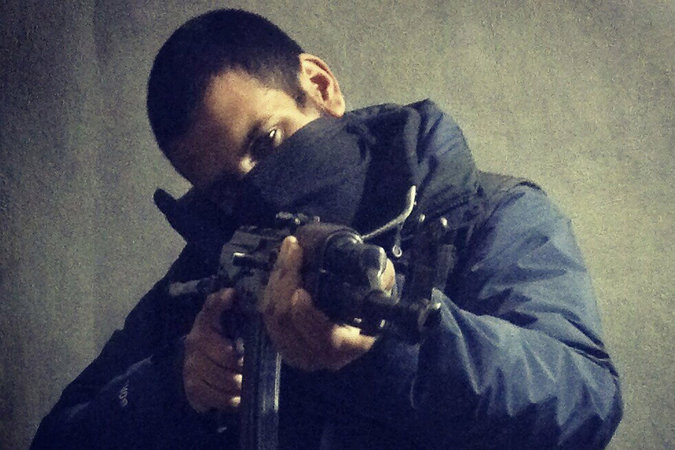WASHINGTON (TIP): In the summer of 2015, armed US drones over eastern Syria stalked Junaid Hussain, an influential hacker and recruiter for the Islamic State.
For weeks, Hussain was careful to keep his young stepson by his side, and the drones held their fire. But late one night, Hussain left an internet cafe alone, and minutes later a Hellfire missile killed him as he walked between two buildings in Raqqa, Syria, the Islamic State’s de facto capital.
Hussain, 21, from Birmingham, England, was a leader of a band of English-speaking computer specialists who had given a far-reaching megaphone to Islamic State propaganda and exhorted online followers to carry out attacks in the West. One by one, US and allied forces have killed the most important of roughly a dozen members of the cell, which the FBI calls “the Legion,” as part of a secretive campaign that has largely silenced a powerful voice that led to a surge of counterterrorism activity across the US in 2015 as young men and women came under the influence of its propaganda.
US military, intelligence and law enforcement officials acknowledge that the Islamic State still retains a sophisticated social media arm that could still inspire attacks like those in San Bernardino, California, and in Orlando, Florida, and remains a potent foe suspected of maintaining clandestine cells in Europe. But they point to the coordinated effort against the Legion as evidence of the success the US has had in reducing the Islamic State’s ability to direct, enable or inspire attacks against the West.
Initially the threat posed by the Legion was primarily seen as a problem for law enforcement officials. But as the threat worsened last year, and the FBI stepped up the monitoring of terrorism suspects around the country, the bureau pressed the military to focus on the group, according to current and former US officials.
While US and British forces conducted a series of drone strikes on members of the group, the FBI sifted through thousands of the Legion’s followers on social media to figure out who had actually been inspired to take action. In the last two years, it has arrested nearly 100 people in cases involving the terrorist group.
Several of the arrests were of people who had direct contact with the Legion. Many of the others were “folks who first came on our radar because we became aware of them” through their connections with Hussain and Reyaad Khan, also a British citizen, who was another leader of the group, according to Andrew McCabe, deputy director of the FBI.
Hussain wore a number of hats, including that of a hacker. He was linked to the release of personal information on more than 1,300 US military and government employees. In March 2015, his group posted the names and addresses of service members with instructions: “Kill them in their own lands, behead them in their own homes, stab them to death as they walk their streets thinking they are safe.”
More important were Hussain’s efforts as an online recruiter. According to court records, Hussain communicated with at least four men in four states, imploring them to initiate attacks or help spread the Islamic State’s message. (PTI)
